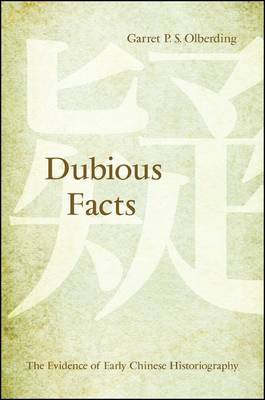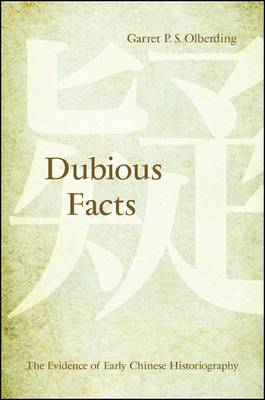
- Afhalen na 1 uur in een winkel met voorraad
- Gratis thuislevering in België vanaf € 30
- Ruim aanbod met 7 miljoen producten
- Afhalen na 1 uur in een winkel met voorraad
- Gratis thuislevering in België vanaf € 30
- Ruim aanbod met 7 miljoen producten
Zoeken
€ 43,95
+ 87 punten
Uitvoering
Omschrijving
What were the intentions of early China's historians? Modern readers must contend with the tension between the narrators' moralizing commentary and their description of events. Although these historians had notions of evidence, it is not clear to what extent they valued what contemporary scholars would deem "hard" facts. Offering an innovative approach to premodern historical documents, Garret P. S. Olberding argues that the speeches of court advisors reveal subtle strategies of information management in the early monarchic context. Olberding focuses on those addresses concerning military campaigns where evidence would be important in guiding immediate social and political policy. His analysis reveals the sophisticated conventions that governed the imperial advisor's logic and suasion in critical state discussions, which were specifically intended to counter anticipated doubts. Dubious Facts illuminates both the decision-making processes that informed early Chinese military campaigns and the historical records that represent them.
Specificaties
Betrokkenen
- Auteur(s):
- Uitgeverij:
Inhoud
- Aantal bladzijden:
- 288
- Taal:
- Engels
- Reeks:
Eigenschappen
- Productcode (EAN):
- 9781438443904
- Verschijningsdatum:
- 2/07/2013
- Uitvoering:
- Paperback
- Formaat:
- Trade paperback (VS)
- Afmetingen:
- 152 mm x 226 mm
- Gewicht:
- 408 g

Alleen bij Standaard Boekhandel
+ 87 punten op je klantenkaart van Standaard Boekhandel
Beoordelingen
We publiceren alleen reviews die voldoen aan de voorwaarden voor reviews. Bekijk onze voorwaarden voor reviews.











